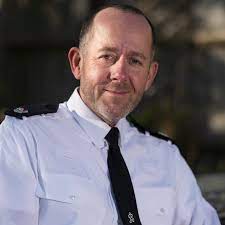
Is policing, whether in uniform or as a staff member, a career for someone with a disability?
Policing is very much a career for someone with a disability, both because we represent a community we serve (18% of the working age population), true to the Peelian Principles, and it is well established belief that all organisations benefit from having a diverse workforce – I find that those who live with those conditions are often the most resilient problem solvers I ever encounter…they have learned to be!
What advice would you give someone thinking of joining the police either as an officer or a staff member with a disability?
The joining requirements, academically and physically apply to all, however some workplace and process adjustments can be made during recruitment and in the workplace, so it is worth having those conversations with the force you wish to apply to.
How much support is there for a person with a disability after they join a police force?
Much more than there was and most forces are striving for a higher Disability Confident status. A national plan is under construction to support the consistent application of support and adjustments across all 43 forces and encourage them all to attain Disability Confident Level 3. We need to move from a medical model of disability to a social model where facilities and IT systems are already accessible and without the need for individual adjustments – we are getting there.
We hear a lot about diversity, why is it important that the police service employs disabled people?
For too long the focus has been on what an individual is not able to do and accepting those discussions need to take place to agree suitable adjustments, we also need to focus on the wealth of diverse abilities still available to our service. Many do not refer to themselves as ‘disabled’ because in some ways it is such as negative term – we are neurodivergent or physiodivergent, we are not ‘typical’ but we bring the benefits that come with our difference.
What challenges have you personally faced and what support did you receive?
I am one of the many others in policing who have encountered a life-changing injury or medical condition during their service – others may receive a diagnosis which finally helps them to understand why they think differently to others. After my cancer and surgery I decided not to discuss how my less-visible disability affected me and was concerned how I might be perceived if I did. I needed to be free to be my true self and also as a leader decided I had a responsibility to discuss disability challenges openly. Eight years on it is great to see us being included in the important national discussions that will make a real difference to lives, supporting those with different abilities to thrive as an alternative to just getting by. This includes members of other diverse groups which means we are able to retain diverse talent across the board as well.
Superintendent Simon Nelson, President of the Disabled Police Association
Read more...
National Police Recruitment Hot Takes from 2025 - the last one might take you by surprise.
Comparison of 2024 and 2025 traffic figures
I'm not the only one visiting All Police Jobs on Christmas Day
Traffic remains high even over the Christmas holiday
You asked...We delivered
A timeline of developments of All Police Jobs working with police forces to improve recruitment outcomes
Routes into Policing
An explanation of the different ways you can join a police force as a new officer
When is the best time to recruit?
Analysis if the job views and clicks at different times of the year